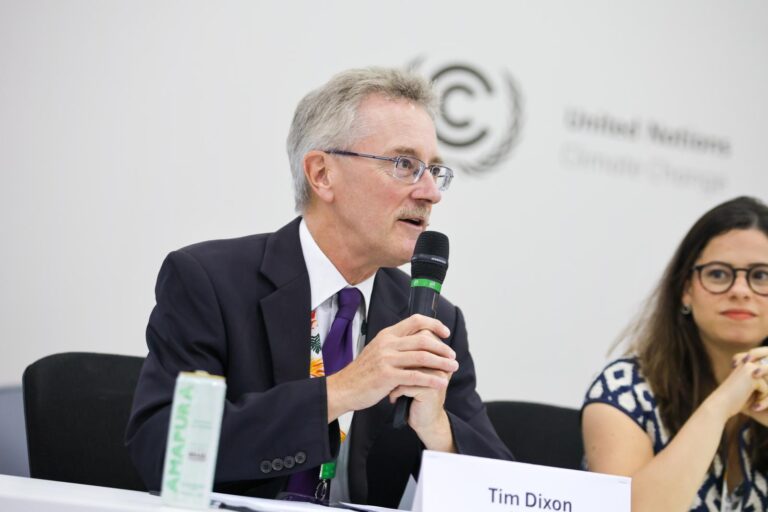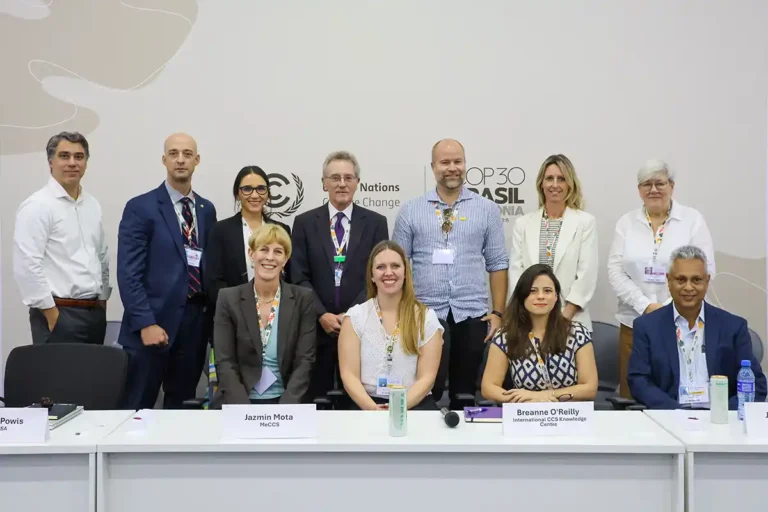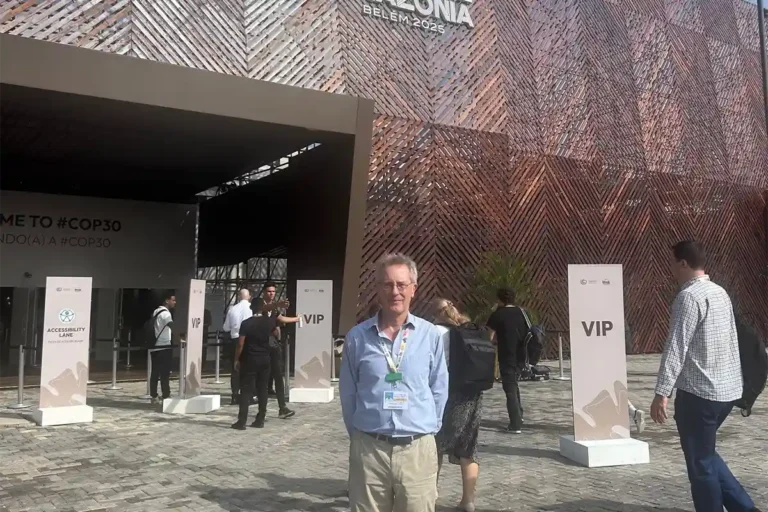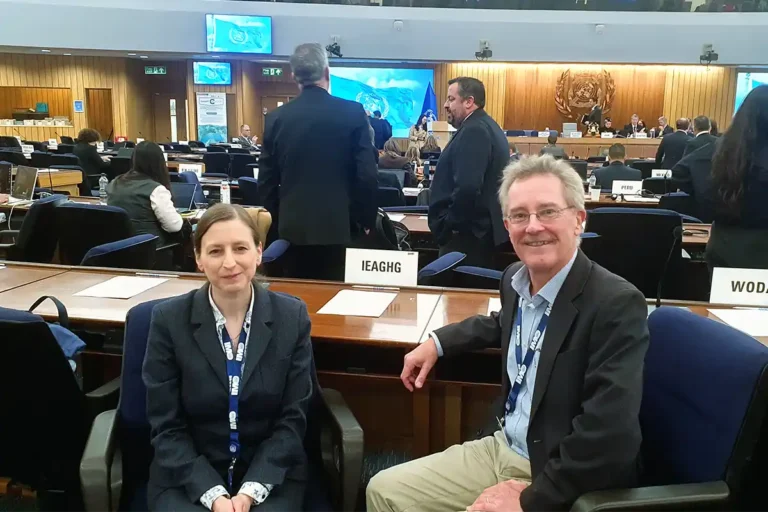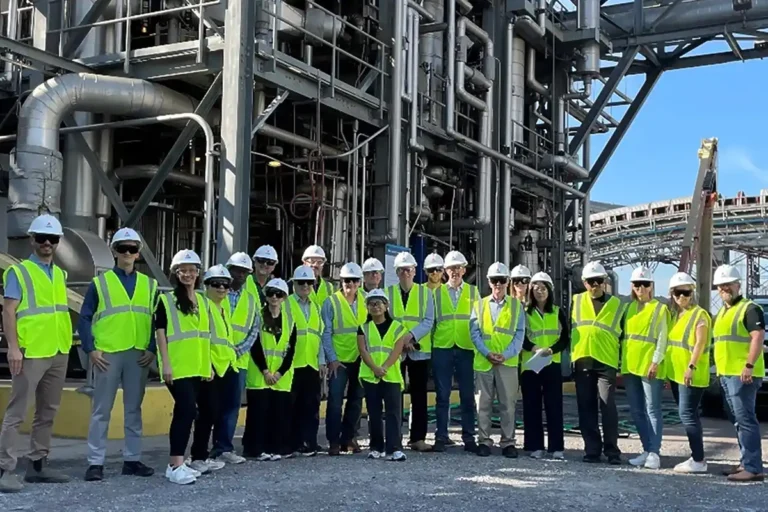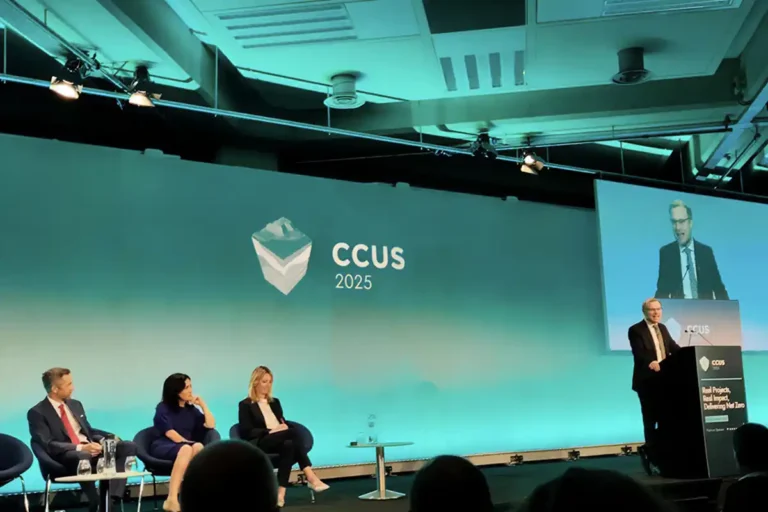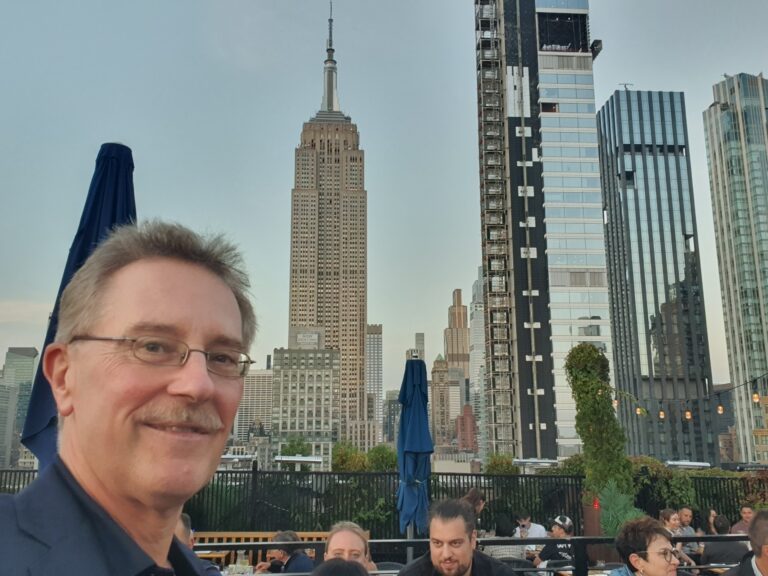
First national workshop on CCUS for Colombia: Opportunities and Challenges
16 October 2023

It is a great pleasure to witness first-hand a country starting on its path to using CCS. We were pleased to assist Ecopetrol in organising international inputs to their first national workshop on CCUS. This workshop concept came as a result of the discussion panel on CCS for developing countries at GHGT-16 in Lyon, where we suggested a national workshop in discussions with Colombia as such workshops can be catalysts for countries starting out towards using CCS. This indeed appeared to be the result of this workshop on the 11 October in Bogota.
Learning from the Colombia Ministry for Mines and Energy on their energy transition roadmap to “carbon neutrality” by 2050 was most interesting. After deforestation and land use changes, the energy sector is Colombia’s next largest source of greenhouse gas emissions. Their carbon neutrality strategy for energy includes energy demand management, energy efficiency, reducing fugitive emissions, more renewable energy such as geothermal, wind and solar, fossil fuel substitution, and CCUS and BECCS. With CCUS, they estimate that 15% of the national energy emissions could be mitigated. The National University at Medellin has started work assessing onshore storage locations. The government have a draft Decree to enable this new carbon neutrality strategy and already has tax benefits in place for CCUS technologies. There was much interest in developing CCS regulations. They have also recently received support from the Inter-American Development Bank for the national CO2 storage assessment, including offshore. They have an established partnership with the UK government and Denmark to assess the potential for offshore wind in the Caribbean, supported by the World Bank.
Ecopetrol are transforming from being just a hydrocarbon company to being an energy transition company with electricity transmission (Colombia’s electricity is 65% hydro) and providing low-carbon energy sources such as hydrogen, geothermal, BECCS and synthetic aviation fuel. They have already started looking at their CO2 emissions from their refineries and the potential for those to be captured, with three CCS projects and several storage possibilities onshore identified.
We also learnt from a Colombian cement company, Argos, on their assessment of their decarbonisation options, which identified that CCS is a crucial part.
International inputs were provided by myself, on the status of CCS in the global climate scene and international regulations, by Katherine Romanak of the University of Texas on storage monitoring and safety and stakeholder outreach, by Carrie Rowe of Shell on experiences in developing a CCS project using the example of Quest (which was of most relevance to Ecopetrol’s intentions), and from Natalia Kulichenko at the World Bank on their CCS activities.
There were many good questions and participation from the attendees who came from Ecopetrol, the Ministry of Mines and Energy, the Ministry for Environment, regulators, the Maritime Directorate, and the cement industry. In the concluding comments, establishing a centre of excellence was suggested.
Thank you to our hosts Ecopetrol, particularly Jaime Jimenez and Edgar Yáñez. With this workshop enabling a focus on CCS from key actors in Colombia, it looks very promising, and we look forward to seeing how Colombia progresses with CCS.
Other articles you might be interested in
Get the latest CCS news and insights
Get essential news and updates from the CCS sector and the IEAGHG by email.
Can’t find what you are looking for?
Whatever you would like to know, our dedicated team of experts is here to help you. Just drop us an email and we will get back to you as soon as we can.
Contact Us NowOther articles you might be interested in
Get the latest CCS news and insights
Get essential news and updates from the CCS sector and the IEAGHG by email.
Can't find what you are looking for?
Whatever you would like to know, our dedicated team of experts is here to help you. Just drop us an email and we will get back to you as soon as we can.
Contact Us Now

